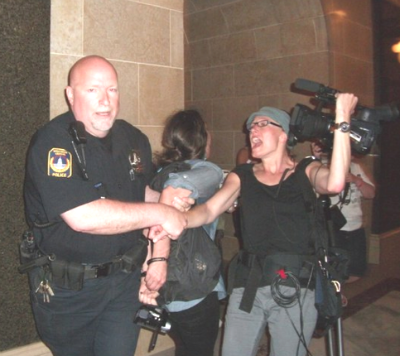The Finkler Question by Howard Jacobson
 The Finkler Question by Howard Jacobson
The Finkler Question by Howard JacobsonMy rating: 1 of 5 stars
After I finished reading The Finkler Question I felt moved to go back to Mark Twain's essay on Fenimore Cooper's literary offenses, because I am convinced that Jacobson is guilty of some of the same offenses. Specifically, he should have taken the time to make his main characters at least slightly believable as human beings, but that apparently would have been too much trouble.
The Finkler Question is meant to be an examination of Jewish identity, as depicted through the actions of a self-hating gentile who by means of a series of incredible events becomes convinced he is actually Jewish. Jacobson asks us to believe in a book with an utterly unbelievable main character. Julian Treslove, the protagonist, is a 49-year-old former BBC employee who makes his living masquerading as celebrities at parties. We learn that his looks are so generic that he can easily pass for Brad Pitt or Colin Firth, or be mistaken for Dustin Hoffman or Adam Sandler. You can believe me when I tell you that there is nobody who could be mistaken for all four of those men, no matter how generic his appearance.
He is also a university graduate whose two best friends are Jews, but has no idea of what goes on at a seder, or even what a seder is. And for some reason, because Finkler is the first Jew he ever met, he internally refers to Jews as “Finklers”.
He has two sons by two different women who dumped him, yet we are expected to believe that both women were moved to name their sons after characters in the operas he was listening to when he lived with them.
There are other characters who are more believable, but having to slog through the life of a character you neither believe in nor care about is a serious drawback.
So is trying to slog through a book that is supposed to be riotously funny and not finding the jokes. Or, to be more accurate, recognizing what are supposed to be jokes but for the glaring problem that they aren't funny.
So the plot, character, and humor in the novel are utterly lacking, what about the politics? If Jacobson is seeking to present a novel of ideas he falls short, because he takes pains to make sure that one of the sides of the debate has nothing going for it. The political debate is about Israel and the Palestinians, naturally, but Jacobson has his thumb on the scale. The supporters of the Palestinians are buffoons, from Finkler’s ASHamed Jews group (Why capitalize the ASH? No explanation is offered) to the frankly anti-Semitic, whereas the pro-Israel side is represented by the family of a young Jewish man who is stabbed and blinded by a Palestinian terrorist. Yeah, real subtle.
Ultimately all the major plot lines get resolved, and some of them are even believable, although I wouldn’t go so far as to say satisfying. Overall, though, this is another one of those Booker Prize winning books that leaves you wondering, “Really? For this?”
View all my reviews
Labels: Finkler, Jacobson, The Finkler Question



